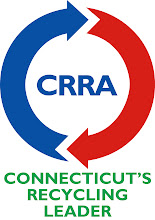CRRA sent the following to members of the legislature’s Government Administration & Elections Committee and Energy & Technology Committee on March 21:
Recently two legislative committees heard testimony that included some rather harsh accusations about CRRA. Making these accusations was a lobbyist representing employees of a former CRRA contractor. However, in re-fighting a battle that a Superior Court judge declared was over, the lobbyist painted a picture of CRRA that is, to put it mildly, inaccurate. Please allow us to correct the record with a few facts.
CRRA is open and transparent. All CRRA meetings are public – in fact several times over the years this same lobbyist has made those same accusations during the public-comment portions of our meetings. While CRRA has been inundated with Freedom of Information requests for many years – many by this former contractor and its network of allies – since the legislature reconstituted CRRA in 2002 the Freedom of Information Commission has never found CRRA to be in violation of open-meetings or open-records laws. Despite the fact that these requests have been costly and burdensome, CRRA has complied fully with each and every request.
Section 22a-268 of the Connecticut General Statutes requires CRRA to use private contractors to operate its facilities. When the contracts to operate CRRA’s largest facility, the Mid-Connecticut Project trash-to-energy facility in Hartford, were nearing their expiration CRRA undertook a public and transparent competitive procurement process to select the best contractor to operate and maintain the plant.
In December 2010, after a 15-month evaluation process, CRRA awarded a contract to the most qualified and lowest-cost bidder, NAES Corporation, to begin operating the plant in December 2011. Almost immediately one of the incumbent contractors sued, claiming CRRA and its selection process were biased. The case went to trial, and after hearing 10 days of testimony and reviewing over 200 exhibits, Superior Court Judge Julia J. Aurigemma rendered a 45-page decision upholding the award of the contract to NAES.
Judge Aurigemma wrote: “The CRRA acted fairly and in a non-discriminatory manner with respect to all bidders in the process, including the (incumbent contractor/plaintiff). The (incumbent contractor/plaintiff), on the other hand, went through the motions of participating in the procurement process while at the same time attempting to legislate the CRRA out of existence.”
In court, it was shown that the incumbent contractor did not act to retain the contract or protect the jobs of its employees. In contrast CRRA required the successful bidder to offer jobs to all the incumbent contractors’ employees at their existing wages. None of those workers lost their jobs.
NAES has proven to be a quality operator. In less than three months, NAES met or exceeded the productivity levels that the former contractor took 24 years to reach.
Furthermore, NAES has quickly and satisfactorily implemented the rigorous safety protocols CRRA requires.
CRRA is pleased with the performance of its new contractor and our customer towns are delighted with the millions in savings for their taxpayers. However, CRRA does face imminent challenges due to collapsing energy markets. Trash-to-energy system has two primary sources of revenue: disposal fees and electricity sales. With robust power prices, CRRA’s disposal fees fall, easing the burden on municipalities, residents and businesses whose trash CRRA manages.
Because natural-gas prices collapsed in the second half of 2011, power prices followed suit. When our new power contract takes effect in less than three months, CRRA will sell its electricity at an all-time low price. Regrettably, this is jeopardizing the lower disposal prices we have offered our customers and, more importantly, risks the 30 years of environmental progress Connecticut has made in managing its solid waste responsibly by forcing hundreds of thousands of tons of trash onto trucks bound for out-of-state landfills.
To combat this, CRRA supports HB 5118, which would make trash-to-energy a Class 1 renewable power source. The premium electric suppliers must pay for Class 1 renewable would ensure the economic viability and the environmental safeguards trash-to-energy offers. The state of Maryland has already taken this step, and we believe it is important for Connecticut to do the same.
Just as there are some generals still fighting the last war, there are some special interests who are still trying to re-litigate a case that clearly validated CRRA’s performance. Thank you for the opportunity to insure that these claims, inaccurate and counter to the facts, do not enter the record unchallenged.
Wednesday, March 21, 2012
Subscribe to:
Posts (Atom)
